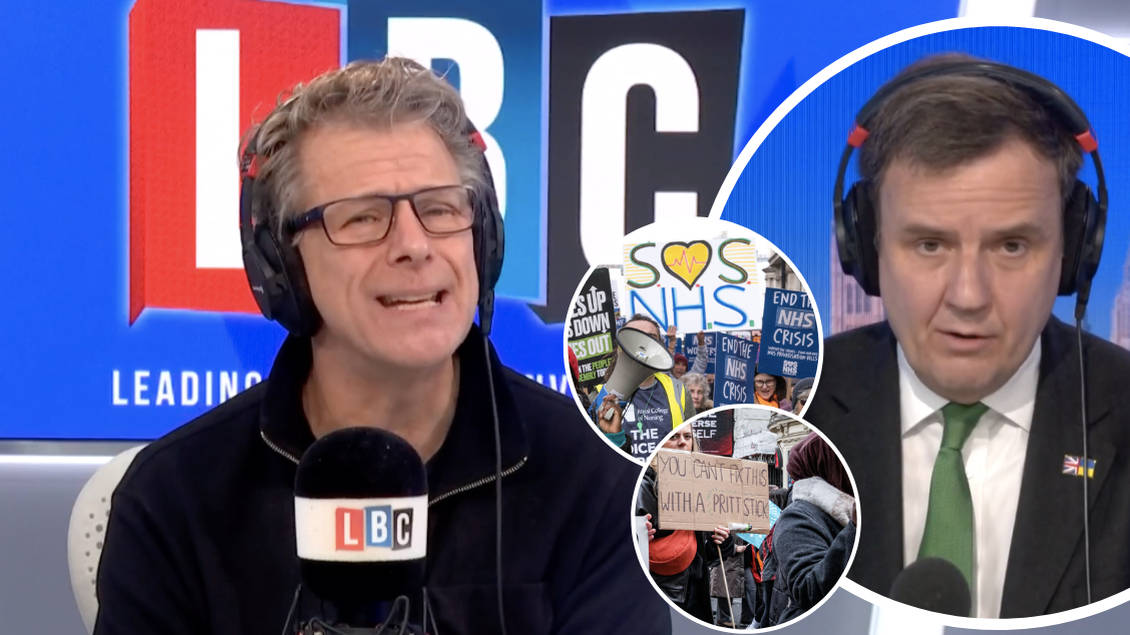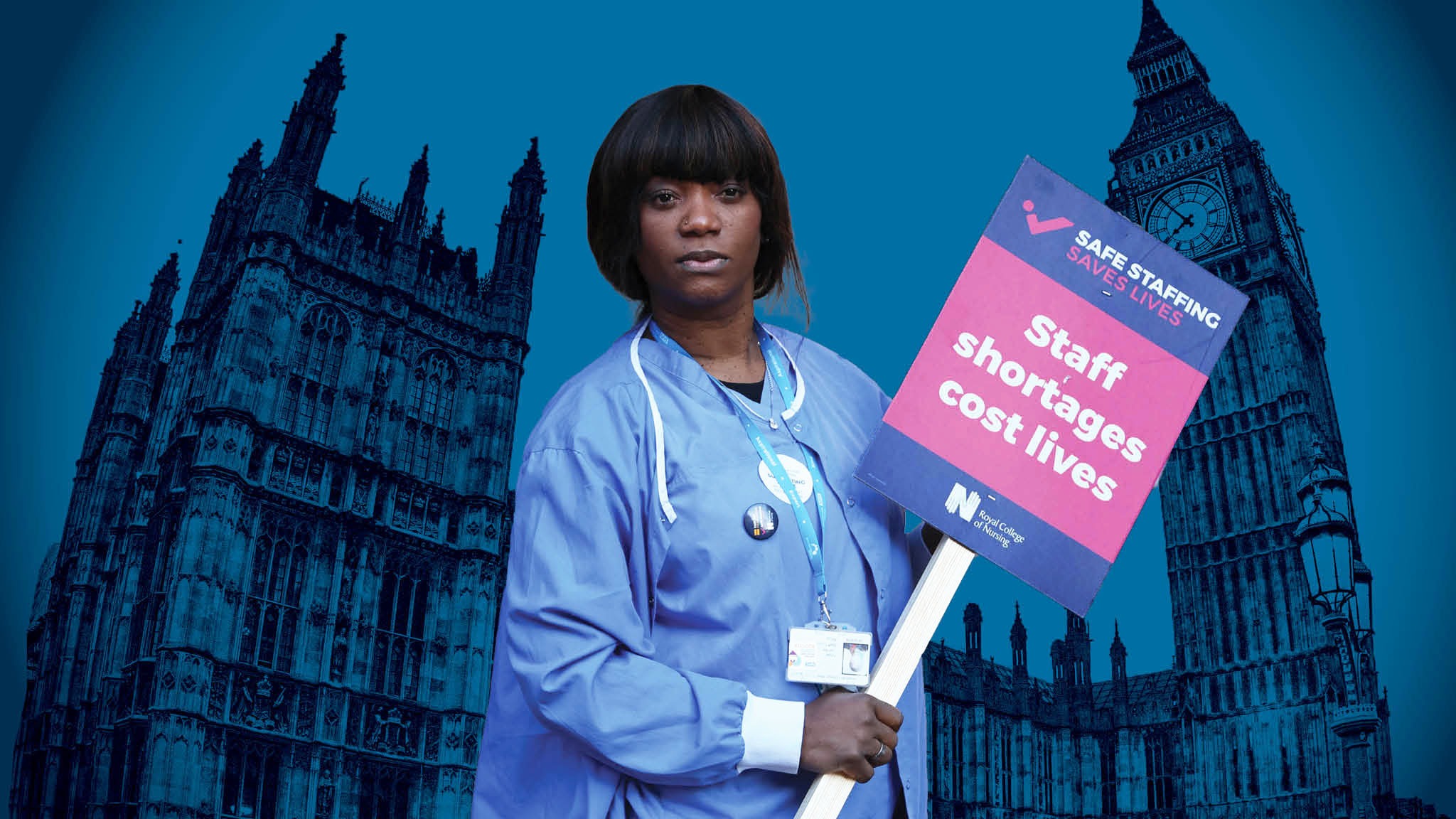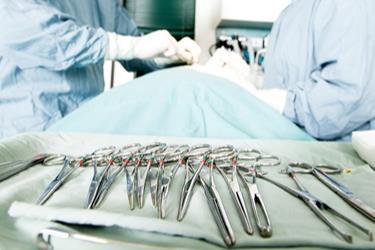Cowper’s Cut 265: The end of the beginning of the strikes

Polling released early this week from Ipsos finds that of those surveyed, support for junior doctors' industrial action has risen by 3% since equivalent polling last month, to 54%.
Just under a quarter (24%) are opposed. Support remains higher only for strikes by nurses (60%) and ambulance workers (60%).
Half (49%) think junior doctors are paid too little, again falling third behind nurses (62% say paid too little) and ambulance workers (58% say paid too little).
This is telling stuff. Its data, like that of the Ipsos Veracity Index, deserves closer attention, but it's possible that the Government is simply choosing to ignore it. There are none so blind as populists that will not see.
Stenographers For Sunak!
The Government's natural stenographers ... sorry, supporters have been playing its tunes faithfully this week, with the mechanical regularity of a ska covers band. There is what you might call an embarrassment of riches from which we can choose, except that these client publications and journalists don't embarrass at all, let alone easily.
The Mail reported that "one Government source said the junior doctors were 'badly led', with the British Medical Association adopting a 'ridiculous' pay demand and refusing to even guarantee confidentiality around pay talks.
'They want us to agree to a 35 per cent deal before they will even get in the room to talk about this year's pay,' the source said. 'That is so far beyond what is affordable that it is hard to take seriously. They are also refusing to commit to confidential talks – it is not a serious position'."
The Mail cited a second government source as saying, "we are so far apart that there is really not much to talk about". Bless! They really understand negotiations, these folks.
The profession on the strikes
It has been instructive to see a range of professional voices giving their reasons for supporting the strike to the media. The Mail provided the following:
Dr Mike Andrews: "the sad thing is the goodwill has gone. People are feeling so angry and frustrated and doctors are starting to burn out."
Dr George Dovey: "our working conditions have got harder. I keep getting less resources. I often spend at least 10 minutes a day trying to find a computer that works. I have to do my work while sitting on a bin or desk."
Sam Taylor-Smith: "the impact of underfunding and understaffing on the NHS means stretched emergency care, continuously cancelled and postponed elective care, it's burnout at a really high level and it's junior doctors not being able to perform at their best because there aren't enough staff to be able to safely cover the wards."
Dr Taylor said before the strikes were announced, his dad was told he had to wait three-and-a-half years for an orthopaedic procedure: "for my dad's sake I want to see a better NHS in the future because I know he's going to need it again".
Nish Manek GP wrote for The Guardian about the experiences of pressure on her and her peers.
The current NHS staff bill is £56 billion per year.
— Dr Sandeep Bansal (@iDrSunny) April 11, 2023
Approximately 47% of the entire NHS budgethttps://t.co/z25GbBXIwq
ent%20of%20the%20NHS%20budget
It was intriguing to see even the Boris Johnson Fanzine giving some space to junior doctor Stephen Fabes to explain the actual costs of being a junior doctor.
And the Sunday Times got consultant anaesthetist Helgi Johanssen to give the perspective of a 'senior' doctor on the experience of covering for striking juniors. He observes that "the atmosphere is very different from only a few weeks ago during the first strike. There is still immense support for the junior doctors, but now there is also a feeling of relentless weariness".
Purdah and the Department For Health But Social Care
On the day purdah was launched ahead of the English local elections, the Department For Health But Social Care's official Twitter account chose to ignore it and publish an inflammatory and political attack on the BMA negotiating position.
The BMA has demanded a 35% pay rise for junior doctors.@FullFact found average earnings for junior doctors is likely between £20 - £30 an hour.https://t.co/ZvlT6Rnbz9 pic.twitter.com/8qt32uqhFG
— Department of Health and Social Care (@DHSCgovuk) April 13, 2023
This is blatantly political conduct, in transgression of the civil service's own rules.
Still, the irony of a Government promising 40 new (if fictional) hospitals by 2030 - number of which built so far = 0 - getting so heroically huffy about the junior doctors’ equally fictional 35% pay claim is exquisite.
We may need to launch a Health Policy Insight campaign for full fictional hospital restoration. Who's with me, Comrades?
The end of the beginning of the strikes
Earlier in the week, The Times' Whitehall editor Chris Smyth gave his perspective on four potential scenarios for the junior doctors' strikes ending.
These seem less robust, since it has become clear that the Royal College of Nursing membership has voted to reject the deal. Nurses in England will strike for two more days over the bank holiday weekend at the turn of this month, after rejecting the Government’s pay deal by 54% to 46% (on a 61% turnout). 74% of voting UNISON members (on a 53% turnout) chose to accept it, however.
Mayday
The NHS Staff Council vote on 2 May now starts to look interesting. Each member of the Council gets a weighted vote corresponding to the size of their membership, and any proposed deal only needs a simple majority to pass.
I had a chunter about this stuff on LBC on Friday.
'Simple fact is people have observed the deterioration of the NHS.'
— LBC (@LBC) April 14, 2023
Editor of Health Policy Insight @HPIAndyCowper tells @lewis_goodall that 'public attitude toward industrial action' is different from when pay offer was negotiated with RCN and explains member's rejection. pic.twitter.com/Bf0ruXXPfl
I wonder when the bulk of NHS leaders and politicians will realise that the mental feudalism that sort-of worked on NHS staff in the past no longer flies. I’ve been saying for a few years now that the old adage that ‘the NHS runs on goodwill’ no longer stands up, particularly in staff under their mid-fifties in age.
I think it’s a good thing, too. Goodwill is a dreadful, infantilising and unreliable basis on which to try to run anything.
The media war
The Banker set his controls for the heart of The Sun, telling its readers that "patient safety is my first priority as Health But Social Care Secretary. Industrial action means the safety of patients is put at risk".

He was perhaps upstaged by Greg Hands, who claimed on LBC that "we're dealing with the strikes at the moment but overall our public services are in great shape".

Well, it's a point of view. The Observer's political team have been hearing that the Conservative And Unionist Party are concerned about the impact of the NHS's ongoing pain on the local elections. Only the locals?

A similarly bemusing take was this Financial Times piece: the writing and analysis aren't bad, but this piece is predicted on the idea that the Government has a strategy for dealing with the strikes. None has been evident so far.
Strikes until Christmas?
Appearing on Sunday With Laura Kuenssberg, RCN general secretary Pat Cullen warned that the Government needs to increase their offer, and until a significantly improved offer comes, RCN nurses will be forced to go back on the picket line.
The current strike mandate runs until early May. Cullen added that she plans to ballot again thereafter, saying "if that ballot is successful, it will mean further strike action right up until Christmas".
Ho ho ho.
Desperate stenographers
The Government’s stenographers have started getting desperate. The Boris Johnson Fanzine wins first prize for their literally and metaphorically hysterical claims that the English junior doctors strikes have directly caused deaths.
Adorably, the BJF asserts that a government source said: “the militant leaders of the BMA junior doctors committee seem willing to put politics above patient safety. They have adopted increasingly hardline tactics whilst demanding a completely unrealistic 35 per cent pay rise.
“They now need to stop the strikes and get serious by putting a much more realistic starting point for talks on the table.”
Today it has been reported that during our first round of action in England mortality rate was 11.1% above the 5 year average.
— Junior Doctors (@BMA_JuniorDocs) April 14, 2023
What they haven’t reported was that in Wales, where no strike action took place, mortality rate was 14% above the 5 year average. 1/3 https://t.co/bZNqJiPlow
The BMA Junior Doctors’ Committee’s Twitter account notes that the Boris Johnson Fanzine “reported that during our first round of action in England mortality rate was 11.1% above the five-year average. What they haven’t reported was that in Wales, where no strike action took place, mortality rate was 14% above the 5 year average …
“Their innumerate use of data doesn't show an increase due to strike action They also claim the excess death rate in England had tripled compared to the two weeks before strikes. True, but in Wales it was the same – triple”.
When seeking to understand changes in death rates, first step is to look at what happened elsewhere. Many things (esp infections) cross borders easily. Effects of strikes don't. So lets look at what happened in Wales, with no strikes https://t.co/f0TnYpkuc0 pic.twitter.com/QaWlEP6zwG
— Martin McKee 🇺🇦 (@martinmckee) April 14, 2023
Professor Martin McKee also takes this nonsense apart with style.
The JDC is clearly correct in saying that “this is an intentional attempt to try and mislead the public. Thanks to the efforts of our consultant and SAS colleagues to keep patients safe, there was no change in mortality trends during strike action”.
It's almost as if the determinants of health actually matter.
ONS deaths data has been released for week ending 31 Mar.
— stuart mcdonald (@ActuaryByDay) April 13, 2023
2,004 more deaths were recorded in-week compared to 5-year avg. That’s 21% more, a large excess but partly due to Easter distorting 5yr avg.
Year-to-date there have been 171,600 deaths recorded, 8% above the 5-year avg. pic.twitter.com/Twa9QS19ri
Who knew?
The numbers game
Clip shows top 20 hospital trusts ranked on proportion of A&E attendees who faced a delay of 12 hours+ while being admitted transferred or discharged. National average is 10% (125k of 12.2m A&E) attendees - but several trusts reported over 20% of patients facing 12 hour delays pic.twitter.com/Sjsjqc49sW
— James Illman (@Jamesillman) April 13, 2023
The first publication of meaningful data on 12-hour A&E waits arrived this week, and to the considerable surprise of absolutely nobody, it's really high.
One in ten patients waits of at least 12 hours: almost 4,500 patients a day encounter this at hospitals in England. (Previous data counted 12-hour delays only once a decision to admit was made: this happens in about a third of cases.)
Insource's Dr Rob Findlay's latest write-up for Health Service Journal makes great sense of the latest waiting times data.
The independent sector's Oliver Twist
Oh, and while we're on the numbers game, the UK private provider sector did the Oliver Twist this week,

asking for higher tariff payment for NHS work. HSJ's Henry Anderson FOI'd the sector's submissions to NHSE as part of a consultation on payment rules for 2023-25, noting that "providers pointed out costs had grown by double-digit rates, while the tariff is only due to increase by 2.9 per cent".
Henry also cites "widespread reports of trusts trying to send more activity private, but not finding capacity for the types of treatments required".
Nor was his FOI activity done there: Henry also unearthed the fact that despite strong objections by many major providers, NHS England went ahead with the reintroduction of Payment For Activity, or as it's better known, Payment By Results. The aim of reintroducing PFA, NHSE state, is to suport elective recovery: there is no mention of their ludicrous and method-free policy for providers to hit 130% of pre-pandemic activity.
Nor is there discussion of the incoherence of reintroducing PFA with integrated care system incentives.
This feels unlikely to end well.
FDP update
This week, HSJ revealed that the UK consortium that had hoped to bid for the Federated Data Platform contract(s) was not progressing to the next stage.
And the Financial Times had a substantial piece about NHS internal resistance to Palantir (COI declaration: on whose health advisory panel I sit), who are thought to be one leading contender for the FTP contract(s).
The FT's Ian Johnston cited NHS analyst critics who "argued Foundry was not “user friendly”, came at an exorbitant cost and had a design that made it difficult for the NHS to switch to a different provider in the future. “Senior leadership love it because it produces nice, shiny dashboards but as an analyst, it doesn’t allow you to do the kind of data manipulation that is the building blocks of your analytical skills,” said one NHS analyst who had used the tech".
The article cited a February email from Ming Tang (NHS England’s chief data and analytics officer) to data specialists that NHSE’s board preferred to “‘buy-in’ commercial off-the-shelf products and configure these, rather than build everything from scratch”, as a means of managing resources efficiently.
EveryGrifter update
…work, lobbying politicians, speaking to a huge network of people.
— Dr Julia Grace Patterson💙 (@JujuliaGrace) April 13, 2023
I’ll tell you what I know (+it’ll be lovely to connect with you away from Twitter trolls!)
You can sign up here🌟🚀
👉 https://t.co/6SUjnBN0QB
Team EveryGrifter are nothing if not persistent.
'I've been supporting the NHS by not working in it for a decade. Buy my coffee and subscribe to my blog. I heart Euros.'
The former Comrade-In-Chief Sir David Nicholson might have a wry smile to note that The NHS Saviour has nicked his title from 2013.

Still, it's all in a good cause of self-enrichment.
The Alan comeuppance
Everybody's favourite Alan Partridge tribute act and ex-Conservative And Unionist Party MP Matt Hancock is being investigated over allegations that he broke the MPs’ code of conduct by “lobbying the commissioner in a manner calculated or intended to influence his consideration” of whether a separate breach had been committed, The Guardian reports.
A-ha.
Recommended and required reading
Healthwatch's new report on GP referrals is quite something.
'Striking images: what caused the NHS crisis and can it be fixed?' is a new podcast from the Institute For Government.
Richard Humphries' blog for the RSA on the case for social care as a foundational service.
Alex Heitmueller is giving the 2023 Dangoor lecture at the RSM on Wednesday 19: his title is 'Towards health creation - we can't afford the NHS anymore'.
The BJF reports on Spanish research promising a new disagnostic test for transfer RNA anomalies that denote diseases including cancer and neurodegenerative diseases.
Theranos fraudster Elizabeth Holmes is finally going to prison, The Guardian reports.
Shaun Lintern has a decent summary of the RCN's in-fights past and present, and a report on the new investigation into 650 deaths of disgraced former Birmingham breast surgeon Ian Paterson.
The Competition and Markets Authority plans a full 'Phase 2' investigation into UnitedHealth's proposed takeover of GP software system EMIS (via Bordeaux UK Holdings II Limited).
BBC News reports that staff involved in the disbanded GIDS at the Tavistock and Portman have been involved in creating ther replacement genmder dysphoria services.




